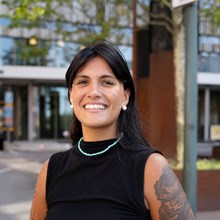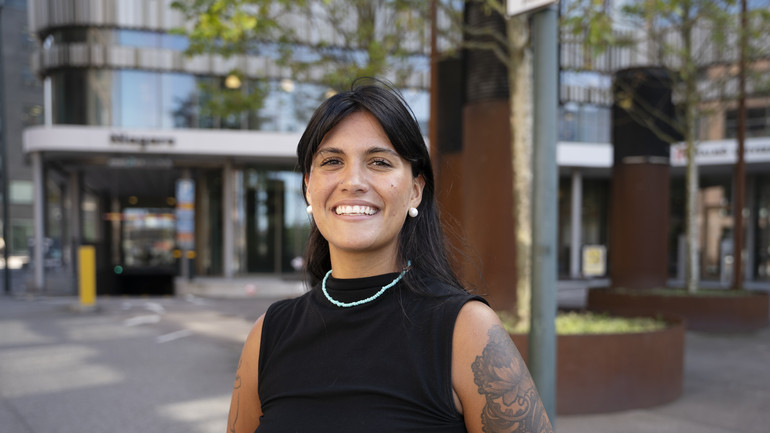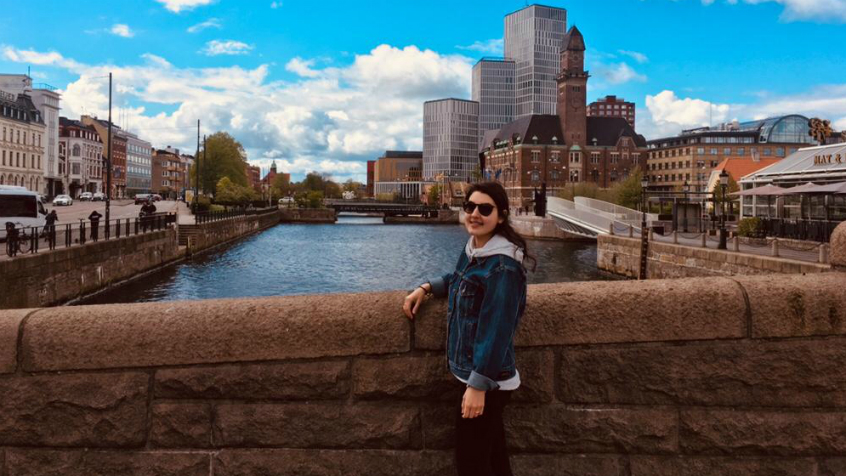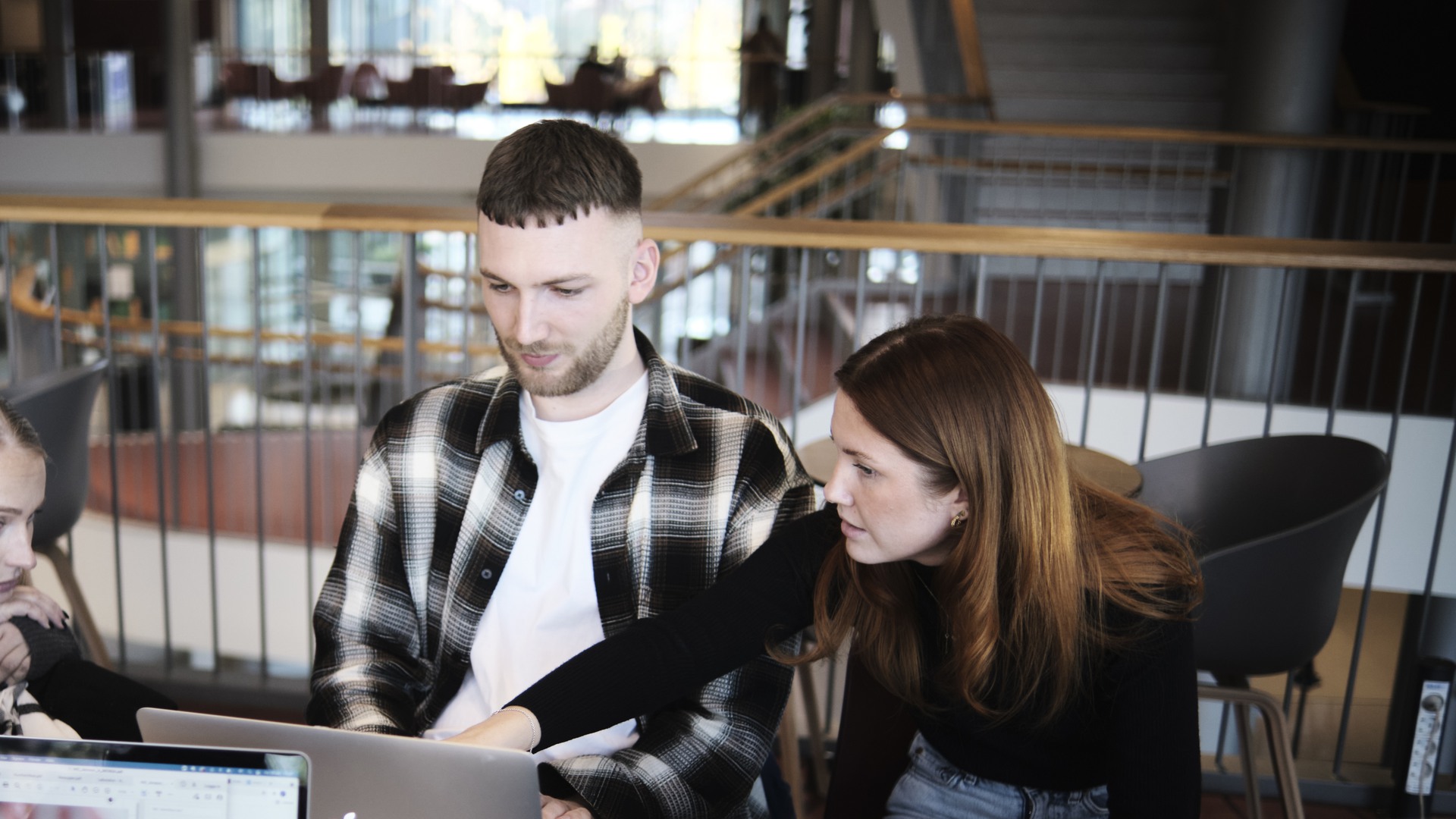"This programme enables you to build a wide range of knowledge in the field of global politics"
Nadja Carlborg studied her bachelor’s in human rights at Malmö University and chose to continue her academic journey in the Global Politics master’s programme. She enjoys the programme’s multi-disciplinary approach and the opportunity to learn more about international relations and human rights. Right now, she’s an intern at Save the Children.
Why did you choose the Global Politics master's programme?
"I enjoy learning and expanding my academic knowledge, especially in the field of global politics. Master's studies enable me to further my knowledge in this field – something I was eager to do after my bachelor's in human rights. I also believed it would be a great stepping-stone to my future career. A master's degree strengthens my resume and can result in exciting opportunities."
"The Global Politics master's programme has a broad and interdisciplinary nature, which was one of the reasons I chose this programme. The programme explores international relations and human rights issues, which excited me due to my previous studies in human rights."
What do you learn during the programme?
"This programme enables you to build a wide range of knowledge. In summary, you learn about global issues, policymaking, pluralism, the modern state, and how to conduct and transcribe interviews. Most exams allow you to select a subject within the framework of the assignment, which gives you the option to either learn more about a subject you already know something about, or to learn something entirely new. I think that’s a huge benefit."
What has been the best course and moment so far?
"The course on policymaking was undoubtedly my favourite. Understanding policymaking processes, as well as the ability to analyse individual policies, will be valuable skills in my professional career. This course also inspired me to choose the method of policy analysis for my master’s thesis."
"I’ll be conducting my thesis in Argentina later this year, and I had the privilege to receive the Crafoord Scholarship as funding for the trip."
Save the Children
"One key reason behind my decision to pursue a master's was the opportunity to do an internship. I got a position in an NGO, which will be a great advantage in my future career, and I’m happy that the programme offers an elective term for this."
"I’ve just started my internship as business developer at Save the Children Sweden, Southern Region. I get to support the work of local clubs in different cities, such as identifying target groups and project planning. Soon, I will also facilitate the mandatory introduction course for all new volunteers of Save the Children and represent the organisation at the University’s association fair."
"I’ve already learned a lot about child poverty in Sweden and projects the organisation has started to counter it. It’s a common misconception that they merely focus on projects overseas – in fact, they do a great deal of important work for children in Sweden. I feel proud to be a part of this, and I can see myself working here once I finish my degree."









